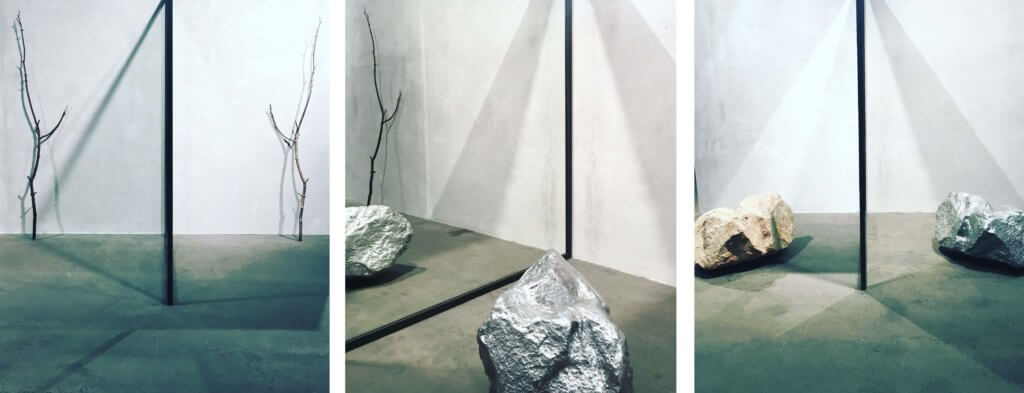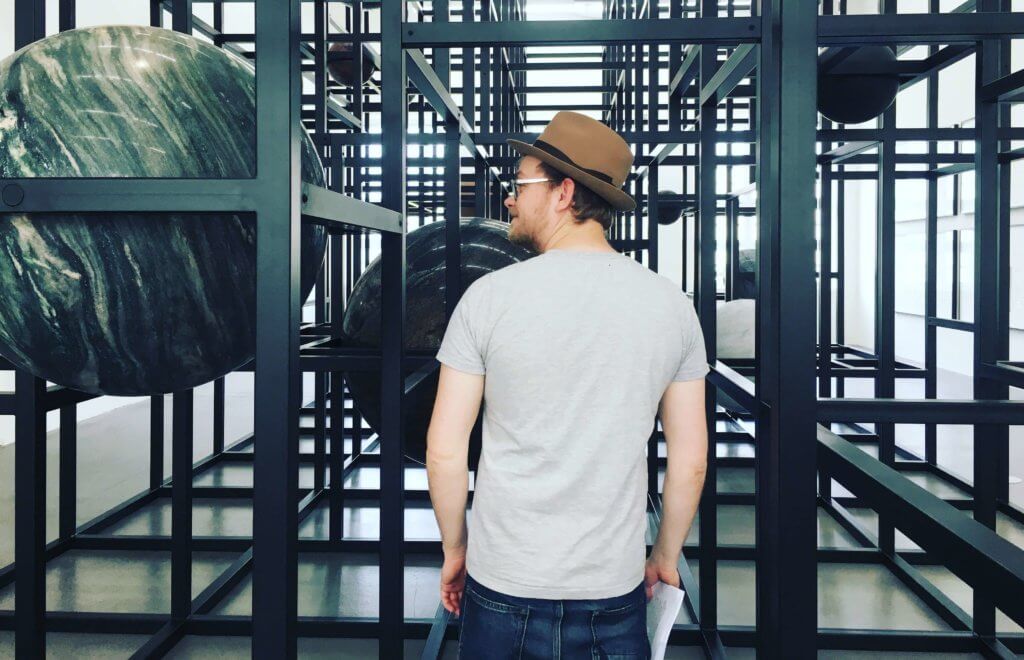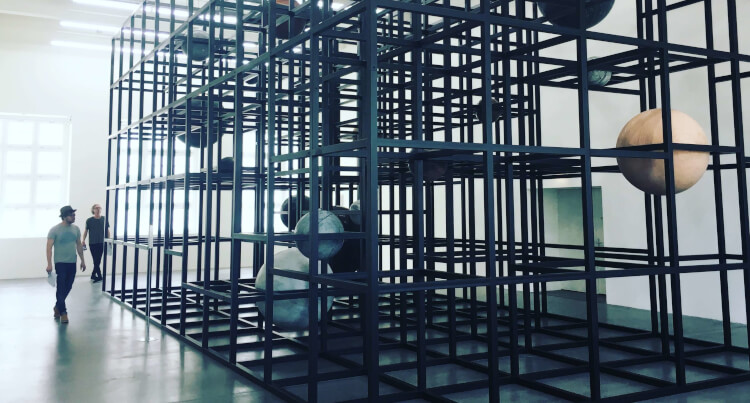I distinctly remember the first time that I saw an installation from the Polish artist Alicja Kwade at Art Basel in 2016. I walked around her work for a long time, surprised by the simultaneous static and dynamic of her work “Out of Ousia”. This installation literally was pushing familiar boundaries of reality that were changing and forming together with the movements of the viewer. Relatively simple structure, consisting of a concrete wall, two-sided mirrors, stones and tree branches, shows four dimensions of an object and its reflection in the mirror. Depending on location of the viewer, one can see only one or two ‘sections’ at the same time, and even realizing that the other sides of the objects exist we will never be able to see and perceive this work as a whole.

Alicja Kwade. Out of Ousia, 2016
Afterwards I saw the works of Alicja Kwade in various museums, and was very excited when I found out that in Zurich in the museum Haus Konstruktiv there will be her personal exhibition called LinienLand. Installation with the same name impressed me not only with its size but also with the boldness of her thinking. A three dimensional grid structure that looked as if it had gravity free spheres of natural stone placed in it, took almost the whole exhibition room of the museum. Each of the stone spheres was brought from different countries. According to the information provided by the museum, Kwade is referencing in her work the novel by Edwin Abbott “Flatland: A romance of many dimensions”, that talks about the multitude of spatial dimensions, and that citizens from each dimension (country) could not imagine or believe that other dimensions exist. The artist made pathways in her installation so that visitors could move between the dimensions.

Alicja Kwade. LinienLand
One floor higher you can see another of the artist’s more interesting pieces of work, “Perception is reality” (Germ. Gegebenenfalls die Wirklichkeit), which features a big granite stone on the pedestal in the middle of the room. The walls of the room are covered with the sheets of paper with individual code on them, same sheets of paper are tidily stacked in the corners of the room. But how is this code printed on 30,000 pages related to the granite? This sculpture is purposefully not finished copy of a stone, existing in nature. It was made with the milling cutter, and code describes the coordinates of an object xyz axes. The top of the stone is an exact copy but the artist stopped the process on purpose to show the technology of the sculpture creation. Here again, Kwade talks about reality and our attitude towards it, presenting viewers with a challenge: what is real – the real stone, its copy or the coordinates that were used to make this copy?

Alicja Kwade. Gegebenenfalls die Wirklichkeit, 2017
LinienLand
Haus Konstruktiv, Zurich
8 Februar – 6 May 2018
Other exhibitions:
Into Nature: Out of Darkness
Into Nature Drenthe, Netherlands
1 July – 16 September
Biennale Gherdëina VI: Writing the Mountains
Ortisei / Val Gardena, Italy
24 June – 15 September 2018
TunnelTeller
Castle Hill on the Crane Estate, Ipswich, MA
May 2018 – April 2019
„Being …“
n.b.k. Showroom, Neuer Berliner Kunstverein
12 June – 10 August, 2018
Alicja Kwade & Jorinde Voigt – Shift Matters
Villa Schöningen, Potsdam
27 April – 22 July 2018
AMBO
Kunsthalle zu Kiel
21 April – 16 September 2018
Artist website: alicjakwade.com

Wow so cool